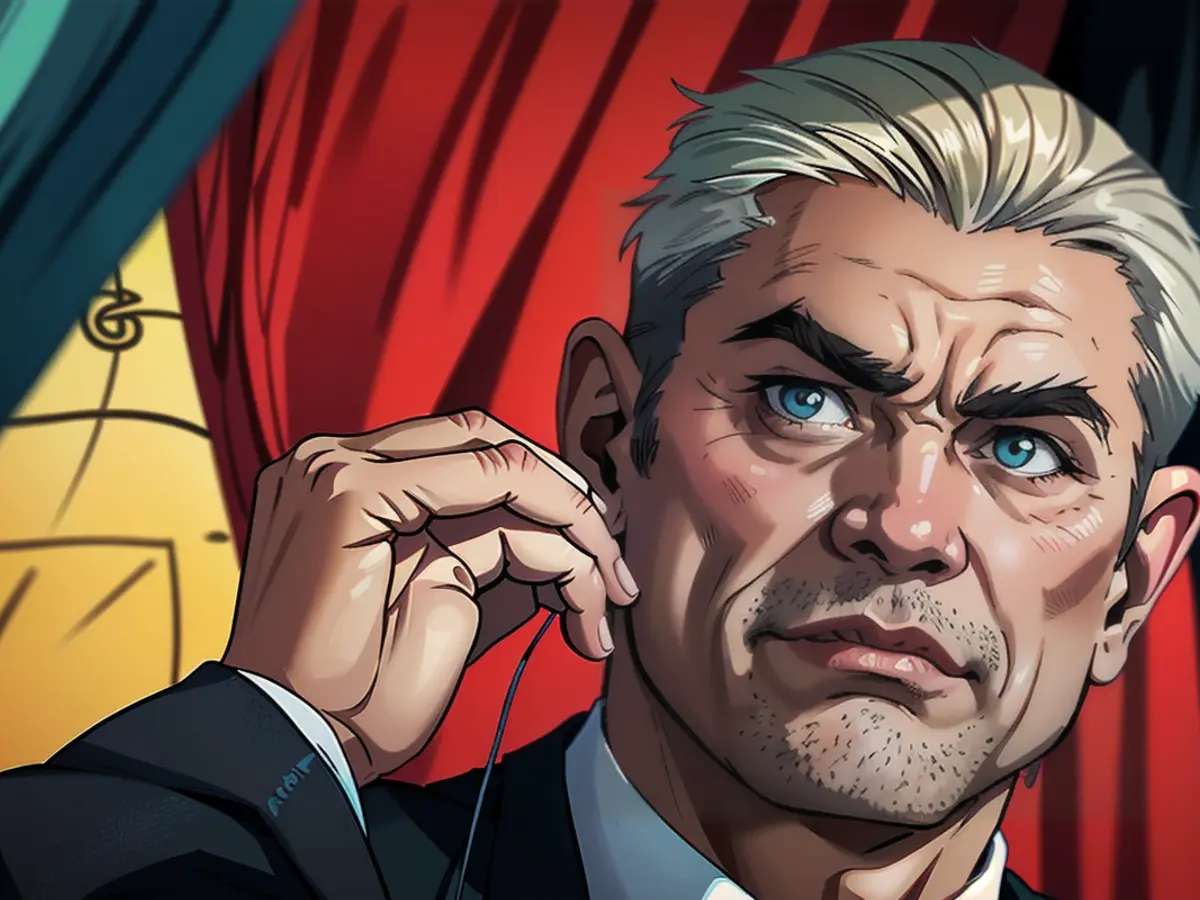Employers criticize Scholz's call for a higher minimum wage.
Olaf Scholz, the Chancellor, is facing backlash for his proposal to increase the minimum wage. His coalition partner, FDP, is openly criticizing him, while employers are also unhappy. Some within Scholz's own party and the SPD support him, and the Left Group sees a possible election campaign strategy.
In Berlin, FDP's parliamentary group leader, Christian Dürr, opposes Scholz's interference in the minimum wage process, calling for it to be handled by the commission. "We're in a social market economy, not a planned one. That's why I think it's right that the Minimum Wage Commission handles this and not turn it into a political game."
Scholz supports a gradual increase to 15 euros. "I'm in favor of increasing the minimum wage to 14 euros first, followed by 15 euros," he told Stern magazine. However, he criticized the commission for not reaching an agreement. "Employers only demanded a small change, which was a breach of trust," the Chancellor said. They also broke with the tradition of mutual agreement, according to Scholz. The plan is to raise the minimum wage from 12.41 to 12.82 euros next year.
"Stay out of it"
Rainer Dulger, president of the German Employers' Association, criticized Scholz for his intervention. "If anyone's breaking a taboo, it's the Chancellor," Dulger said. Scholz had promised not to interfere in the work of the minimum wage commission. "It's extremely dangerous for our economy, job security, and collective bargaining autonomy to constantly increase pressure on the Minimum Wage Commission for political reasons."
Alexander Schirp, Managing Director of the Federation of Business Associations in Berlin and Brandenburg, and Dirk Jandura, President of the Federal Association of Wholesale, Foreign Trade and Services, also spoke out against the Chancellor's intervention. Schirp described it as "an impertinence," while Jandura called it "interference by the Chancellor."
CDU/CSU's First Parliamentary Secretary, Thorsten Frei, told Berlin reporters that wage setting was an employer's responsibility, not the Chancellor's. "If the Minimum Wage Commission isn't coming up with the right solutions, one could consider adjusting the mechanisms if necessary. What definitely won't work, however, is raising it politically without consulting the collective bargaining partners."
"Absolutely right"
Dagmar Schmidt, deputy chair of the SPD parliamentary group in the Bundestag, backs Scholz's initiative. She said, "It's absolutely right. The adjustment of the minimum wage this year and next year is too low given the burden on employees." Britta Haßelmann, parliamentary group leader of the Greens in the Bundestag, also supports the plan. "We should conduct the debate proactively instead of waiting for a price increase or wage dumping."
The Left Party's deputy chairwoman, Susanne Ferschl, considers the Chancellor's demand to be an election strategy. "As Chancellor, Scholz can do more than just make demands in the media. He has the opportunity to take this step, but neither he nor SPD Minister of Labor Hubertus Heil ensured that the minimum wage law was amended in line with EU requirements. She thinks he's just trying to fool voters."
Stefan Körzell, DGB board member and member of the minimum wage commission, agrees with the Chancellor, as the trade union federation wants a poverty-proof statutory minimum wage. "The European Minimum Wage Directive sets 60% of the median income of full-time employees as a benchmark, which currently corresponds to just over 14 euros. Of course, we could reach 15 euros next year because the trend continues and prices are rising."
Read also:
- Year of climate records: extreme is the new normal
- Precautionary arrests show Islamist terror threat
- UN vote urges Israel to ceasefire
- SPD rules out budget resolution before the end of the year
- The SPD, led by Olaf Scholz, has a coalition partner in the Green Party and the FDP, but the FDP has criticized Scholz's proposal to increase the minimum wage.
- Rainer Dulger, president of the German Trade Union Confederation (DGB), supports Scholz's call for a higher minimum wage, arguing that it's necessary to ensure employees are not burdened excessively.
- Some within the SPD and The Left, another party in the German political landscape, see Scholz's proposal as a potential election campaign strategy.
- Employers, however, are strongly opposed to the increase, with representatives from the Federation of Business Associations in Berlin and Brandenburg and the Federal Association of Wholesale, Foreign Trade and Services expressing their concerns.
Source: www.ntv.de








